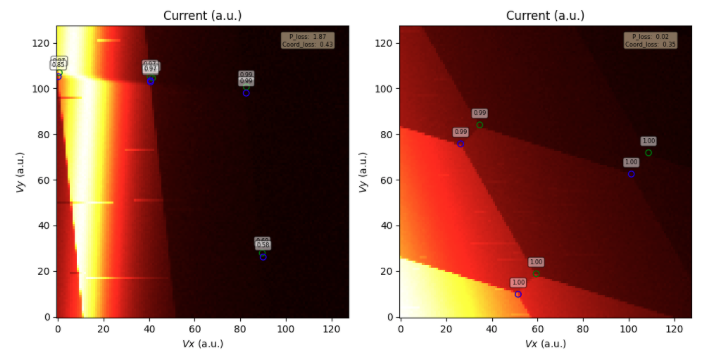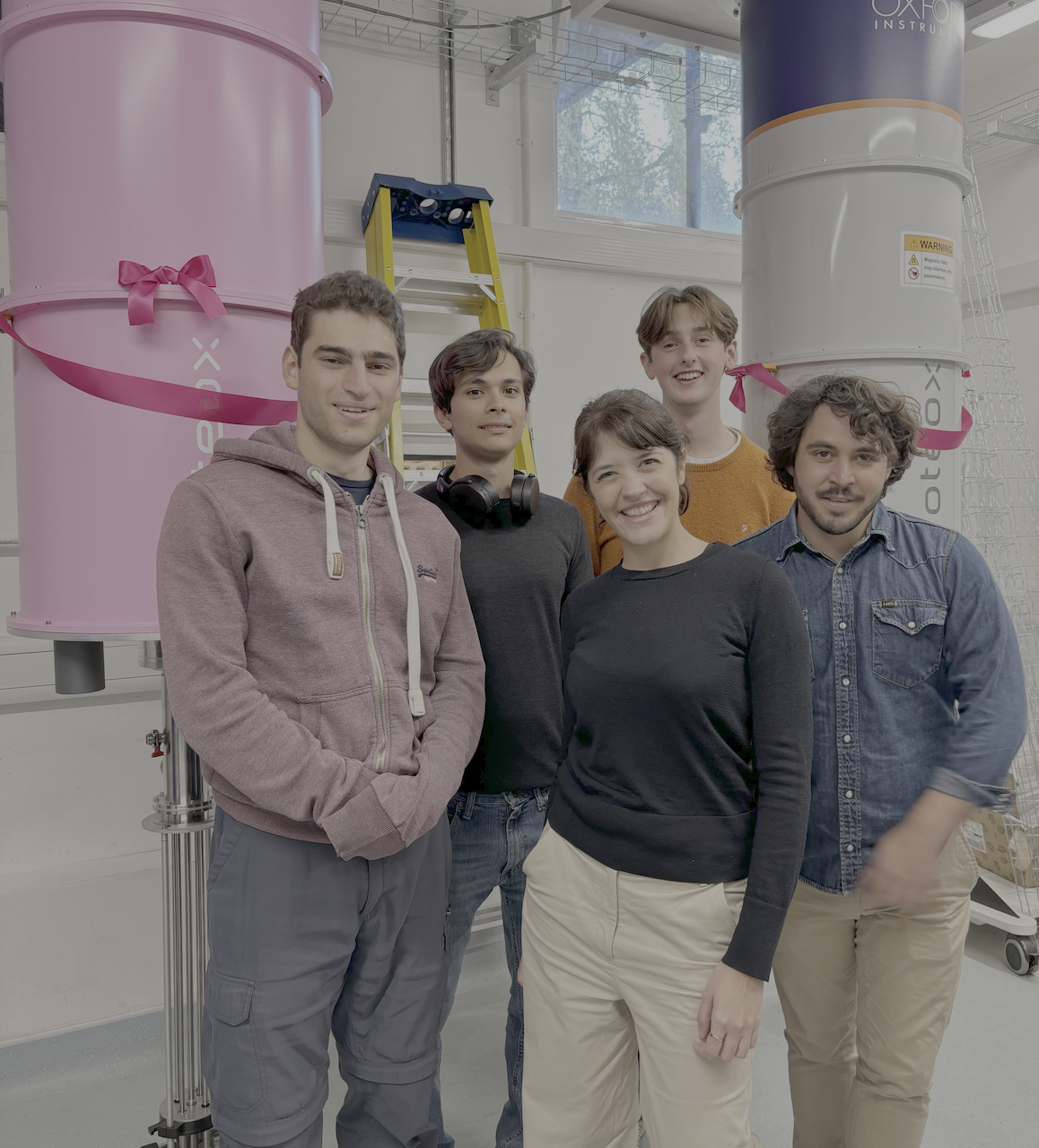Quantum AI at New College
This summer, three undergraduate students, Rahul, Thomas, and Luke, embarked on a project blending quantum computing with cutting-edge machine learning techniques. Working alongside Engineering Fellow, Natalia Ares, and W.W. Spooner Fellow, Federico Fedele, their research focused on automating the tuning of spin qubits, a critical component in the development of scalable quantum computing technologies.
Rahul’s work centred on building and tuning spin qubits, building a transformer-based (a type of machine learning architecture) machine learning model to detect ‘triple points’ within charge stability diagrams. Rahul explained, ‘These points contain interesting information that is used in the tuning process’.

Meanwhile, Thomas and Luke focused on enhancing the process of tuning qubits using radio-frequency reflectometry – an efficient sensitive method for measuring two-dimensional systems. Thomas noted: ‘We developed a scoring function capable of detecting double and single dots from charge stability diagrams. We trained a convolutional neural network to achieve high accuracy’. Their method promises greater accuracy in measuring these diagrams, contrasting previous approaches that relied on current sensors.
Luke's prior work involved stabilizing the readout from quantum devices by developing a machine-learning model that could rapidly identify specific signatures within charge stability diagrams. He described the challenge: “The device is incredibly sensitive, meaning our data is subject to noise and drifting.” His model efficiently predicted where charge signatures might shift, drastically improving response times compared to manual analysis.
All three students expressed a profound impact of this research on their understanding of both quantum computing and machine learning. As these students return to their studies, their project serves as a testament to the exciting possibilities that lie at the intersection of quantum mechanics and machine learning.

